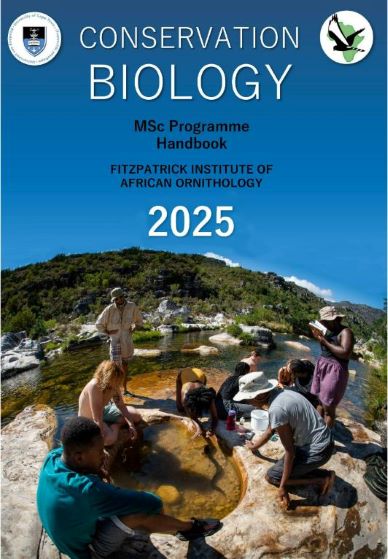Conservation Biology Coursework Masters Programme
Conservation biology is the study of how best to sustain and manage linked systems of people and nature. It is a new science that builds on a range of existing disciplines, ranging from ecology and evolution to sociology and economics. Conservation biology is becoming increasingly important for human wellbeing as the impacts of human activities on the biosphere become more significant.
A programme in Conservation Biology was established at the FitzPatrick Institute in 1991 to educate students and conservation practitioners in the fast developing field of conservation science. The FitzPatrick Institute is housed within the Biological Sciences Department in the Faculty of Science at the University of Cape Town. The Fitz promotes and undertakes scientific studies, mainly involving birds that contribute to the theoretical and practical development of ecology, evolution, and conservation biology. The central focus of the conservation biology programme at the Fitz is an intensive MSc degree comprising 7 months of coursework and a 6-month individual research project.
South African society has been through a set of massive changes in the last 30 years; much of the resulting dynamism and openness to new ideas is mirrored in South African conservation. The discipline of conservation biology is undergoing a similar paradigm shift, in which notions of preservation and paternalism are being replaced by an ethic that recognises the complexity of linked social and ecological systems and the critical need for solid interdisciplinary research. The FitzPatrick Institute is contributing to this disciplinary transformation through research and teaching, while also collaborating with others to support sound, action-oriented science.
Details for Applicants
| Download the 2025 handbook here - for a brief course overview and details about the application process. |  |
